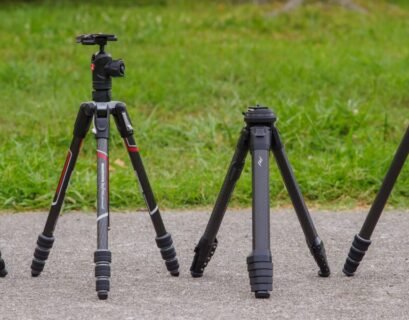Introduction
In the pursuit of mastering any skill, few principles are as fundamental as regular practice. For photographers, whether they are beginners or seasoned professionals, the commitment to consistent practice is the key to improvement and growth. This article delves into the importance of regular practice in honing photography skills, explores the benefits it offers, and provides actionable strategies for integrating practice into a photographer’s routine.
The Role of Regular Practice
Regular practice is the cornerstone of progress in any field, and photography is no exception. It offers several critical benefits:
- Skill Development: Regular practice helps in developing technical skills such as understanding camera settings, lighting, and composition.
- Creativity Enhancement: It fosters creativity by encouraging photographers to experiment with new ideas and techniques.
- Mistake Correction: Through practice, photographers can identify and correct mistakes, learning from them and refining their approach.
- Muscle Memory: It builds muscle memory, which is crucial for tasks such as focusing, framing, and timing shots.
- Confidence Building: Consistent practice boosts confidence, allowing photographers to tackle more complex projects and challenges.
Setting Goals for Practice
Before diving into regular practice, it’s essential to set clear and achievable goals. These goals should be specific, measurable, attainable, relevant, and time-bound (SMART):
- Specific: Define what you want to achieve, such as mastering a particular technique or genre.
- Measurable: Determine how you will track your progress.
- Attainable: Ensure your goals are challenging but within reach.
- Relevant: Align your goals with your overall photography aspirations.
- Time-bound: Set a timeframe for achieving your goals.
Creating a Practice Routine
Establishing a routine is crucial for regular practice. Here are some steps to create an effective practice routine:
- Schedule Practice Sessions: Dedicate specific times for practice, treating these sessions with the same importance as any other commitment.
- Start Small: Begin with short, regular sessions and gradually increase the duration as your comfort and skill level grow.
- Consistency: Aim for consistency over intensity; it’s better to practice a little every day than to have long, sporadic sessions.
- Variety: Mix up your practice to include different techniques, subjects, and styles to keep it engaging and to develop a well-rounded skill set.
- Review and Reflect: Regularly review your work and reflect on your progress and areas for improvement.
Overcoming Common Challenges
Maintaining regular practice can be challenging due to various factors:
- Time Constraints: Life’s demands can make it difficult to find time for practice. Prioritize your schedule and consider shorter, more frequent sessions.
- Motivation: Keep your motivation high by setting achievable goals, celebrating small victories, and seeking inspiration from other photographers.
- Burnout: Avoid burnout by ensuring your practice sessions are enjoyable and not overly demanding. Take breaks when needed.
- Fear of Failure: Embrace failure as a part of the learning process. Each mistake is an opportunity to learn and improve.
Making Practice Meaningful
To get the most out of your practice sessions, consider the following:
- Focus on Fundamentals: Regularly revisit the basics to solidify your understanding and ensure a strong foundation.
- Experiment: Use practice sessions to try out new techniques or ideas without the pressure of a client or deadline.
- Seek Feedback: Share your work with others and be open to constructive criticism. This can provide valuable insights and help you grow.
- Learn from Others: Study the work of other photographers and incorporate elements of their style or technique into your practice.
- Document Your Progress: Keep a visual journal or portfolio of your practice sessions to track your development over time.
Integrating Practice with Real-Life Scenarios
While controlled practice sessions are beneficial, integrating photography into your daily life can also yield significant benefits:
- Carry Your Camera: Make it a habit to have your camera with you to capture spontaneous moments.
- Daily Challenges: Set daily or weekly photography challenges to push yourself creatively.
- Real-World Projects: Apply your practice skills to real-world projects, such as photographing events or creating a personal project.
- Teach Others: Teaching photography to others can reinforce your own knowledge and skills.
Conclusion
Regular practice is the key to unlocking your full potential as a photographer. It not only helps in refining technical skills but also in fostering creativity and building confidence. By setting SMART goals, creating a consistent routine, overcoming challenges, and making practice meaningful, photographers can ensure they are on a path of continuous improvement. Remember, the journey to mastery is paved with consistent effort and dedication. So, pick up your camera, set your goals, and embark on the rewarding journey of regular practice in photography.







